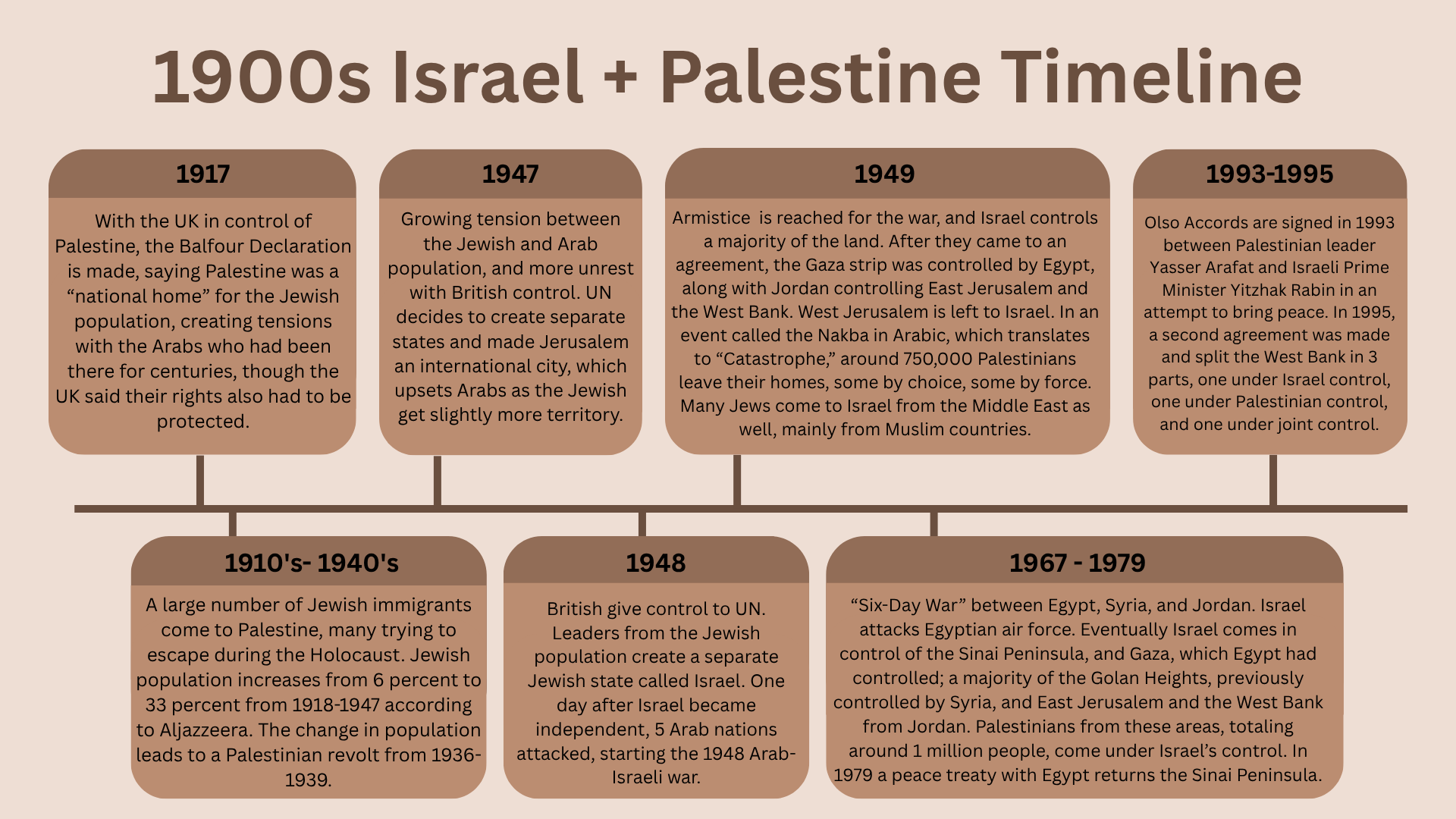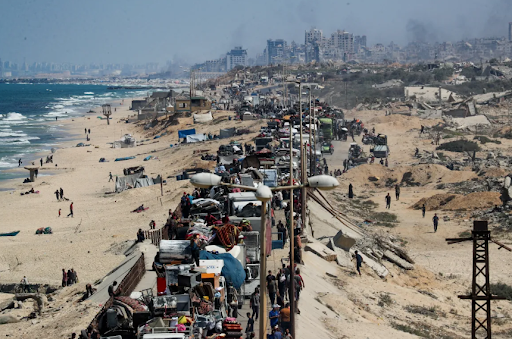The conflict between Israel and Palestine dates all the way back to the early 1900s, and it continues to affect people today. Within the past few years, there have been major developments in the dispute, including major conflict in the Gaza Strip, a Palestinian territory on the border of Israel totaling about 140.9 square miles.

In 2023, the fighting progressed on Oct. 7, when Harakat al-Muqawamah al-Islamiyyah (Hamas), which translates to Islamic Resistance Movement, killed around 1,200 people in Israel and took around 250 hostages after initiating an attack from Gaza. Hamas is a Palestinian Sunni Islamist military and sociopolitical group that is mainly located in Gaza, but also has locations in various other places including Lebanon and the West Bank. Their main goal is to liberate Palestinians by removing Israel and making a Palestinian Islamic state in its place. In 1997, Hamas was recognized as a Foreign Terrorist Organization (FTO) by the U.S. Department in State. The reason for this ruling was the start of attacks against Israel and its people, which have included a range of tactics including missile attacks.
The attack on Oct. 7 devastated the Israeli community. During the attack, Hamas fired thousands of rockets as they overwhelmed Israel. Out of around 250 hostages taken during the attack, about 48 of them are still held by Hamas today. Many of the citizens who were not murdered or kidnapped in these attacks were tortured, and numerous women were sexually assaulted and raped. This strike triggered the start of a war between Israel and Hamas, which is still continuing today.
July 2024 brought more changes to the situation, when the International Court of Justice (ICJ), the top court of the United Nations (UN), prohibited Israel from staying in the Occupied Palestinian Territories. During this time, Israel had been pushing further onto the West Bank, which caused violence to continue. After the ruling, Israel managed to keep the legality of occupying these areas, and was able to negotiate staying.
Now, in 2025, new conflicts have risen, including bombings and famine. On May 13, at about 10:00 a.m. the Nassar Hospital in Khan Younis, located in Gaza, was attacked by Israel with a military strike. While journalists and rescuers rushed to respond to the attack, a second strike hit the hospital. Twenty people were left dead, including five journalists, four of which died on impact, and one that passed away due to injuries. Fifteen others were killed, and dozens were injured, including hospital staff, patients, and other rescuers.
On Aug. 22, a famine was declared in the Gaza Governorate, according to an International Food Security Phase Classification (IPC) Famine Review Committee (FRC). Electricity, clean water, healthcare, and other infrastructure has been damaged, leaving Gaza with shortages of things like carbohydrates and proteins, causing further health problems. Hospitals in the area have filled up to maximum capacity, not only because of the increasing cases of malnutrition and war injuries, but many medical buildings have been destroyed or closed due to the increases in attacks. Due to the famine, it is not just this generation that will be affected by the crisis in Gaza, but for generations to come, citizens of Gaza will be put through increased risk of stunted growth and impacts on brain and organ development.

Along with the famine, homelessness in Gaza has been on the rise, with a total of around 90% of the population displaced, according to the Red Cross. Due to the war, many people have been forced to evacuate their homes to escape harsh living conditions, most living in cars or tents.
When it comes to the United States’ stance, President Donald Trump extended the majority of his support to Israel. Around $12 billion in Foreign Military Sales has been approved to support Israel. He also acknowledged Jerusalem as Israel’s capital during his first term, which was part of the disagreements between the two areas.
The conflict between the Palestinian territories and Israel continues to develop, with casualties rising to about 67,000 Palestinians and Israelis, mainly in Gaza, and thousands of others injured and malnourished. Here in Fenton, these casualties and injuries aren’t just statistics to some people. To some, they are family members, friends, and loved ones. Though attempts have been made, there is yet to be a negotiation to end this war, and even if it does end soon, its effects will continue to alter lives far into the future.







